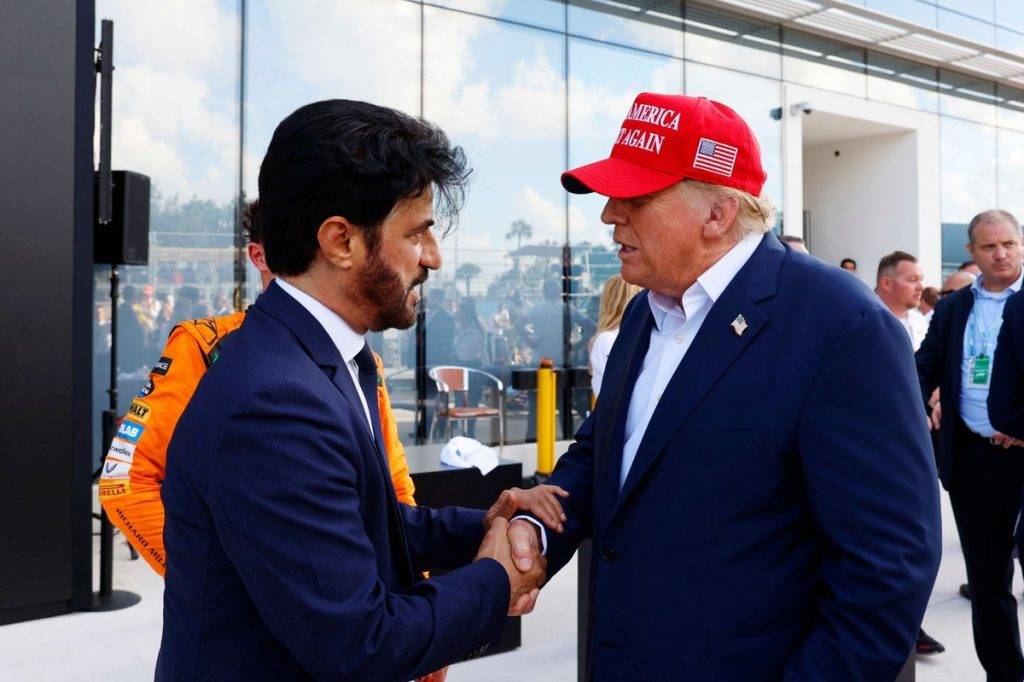Formula 1 Braces for Economic Impact from Trump’s Tariffs
Formula 1 is poised to feel the repercussions of US President Donald Trump’s recently announced tariffs, which have already created a wave of uncertainty in global markets. As the series embarks on its latest race weekend in Japan, experts warn that F1 teams and manufacturers could face significant financial challenges amid the shifting landscape of international trade.
How Trump’s Tariffs Could Affect F1
Industry veteran Mark Gallagher, CEO of Performance Insights, highlights the potential ramifications for F1 amid Trump’s tariff measures. With global automotive markets grappling with the fallout from these tariffs, the immediate effects on F1 are still unfolding.
“It’s still early days; it remains to be seen what impact this is going to have on Formula 1,” Gallagher conveyed in a recent podcast discussion. “The automotive industry as a whole will undoubtedly be hit by the tariffs, which were introduced amid claims of an unfair trading system for cars and components.”
Potential Impact on Teams
Major Manufacturers at Risk
Gallagher points out that major F1 teams—especially those linked to powerful automotive brands—are likely to feel the squeeze. For example, Mercedes-Benz sold approximately 325,000 vehicles in the US last year, accounting for a significant portion of their sales. Ferrari and Mclaren may face even greater challenges, with McLaren deriving 46% of its wholesale sales from North America.
Ferrari reportedly sends about 25% of its output to the US, with California as a key market. This heavy reliance raises eyebrows regarding how the tariffs could further complicate their operations.
Haas Automation’s Position
Haas, the only American team currently on the grid, issued a statement recognizing the potential impact of tariffs on its business, particularly regarding demand for their manufacturing tools. Haas Automation expressed caution, citing reduced demand and halting new hiring processes.
The company, which employs around 1,700 workers at its California facility, remains optimistic about finding solutions that would alleviate the adverse effects of these tariffs.
Sponsors and Partnerships in Jeopardy
The ripple effects of Trump’s tariffs could extend beyond the teams themselves. Gallagher warned that sponsors may tighten their budgets due to financial uncertainties. This could lead to complications in partner negotiations and team funding, particularly if the tariffs contribute to a prolonged nervousness in the market.
“American influence in F1 is significant, given the high stakes for companies operating in this environment,” he added. The ramifications could linger, especially if the current state of uncertainty stretches into the summer and autumn, potentially affecting negotiations for the 2026 season.
Historical Context: F1’s Resilience
Historically, Formula 1 has navigated numerous challenges, including the global financial crisis of 2008 and the recent COVID-19 pandemic. Liberty Media, which owns the sport, is closely monitoring how external economic factors are influencing the F1 landscape. Gallagher underscores the necessity for calm amid these uncertainties, emphasizing the sport’s capacity to endure hardships.
“It will affect Formula 1, from car manufacturers to sponsors, as the overall economic impact globally can’t be ignored,” he noted.
As the situation evolves, F1 stakeholders remain on high alert, keenly observing the economic winds shifting across the international stage. In the coming weeks, the sport’s response to Trump’s tariffs will be crucial in determining its financial stability and competitive landscape for the future.


